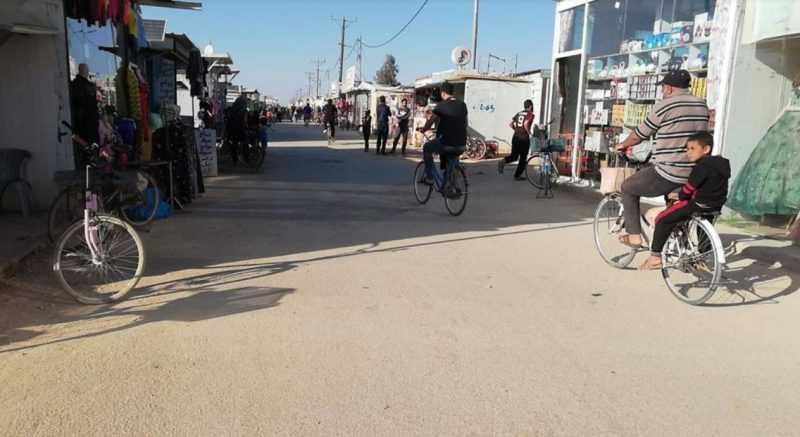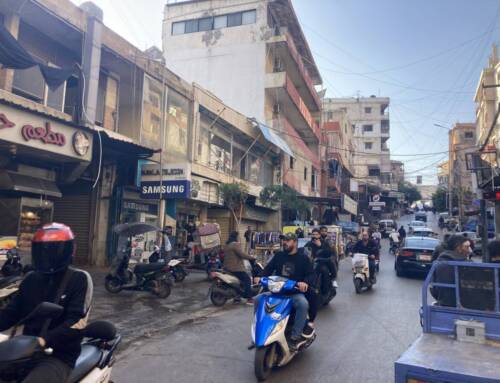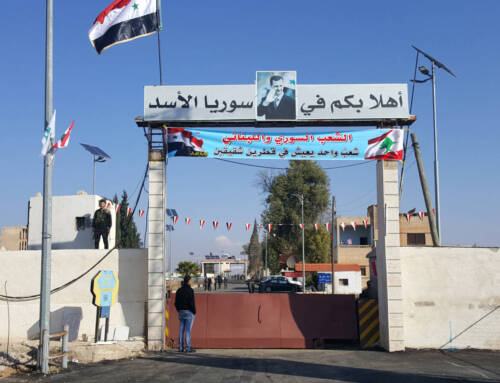Syrian refugees in neighboring countries face a bleak future
Syrian refugees in neighboring countries such as Turkey, Lebanon and Jordan face an uncertain future amid economic hardship, hate speech and pressure to return.
22 June 2022
PARIS — This week, the world marked World Refugee Day, which falls on June 20 every year. Syrian refugees in countries bordering Syria spent the day in difficult economic, legal and social conditions—exacerbated by waves of hate speech.
Syrians in Turkey are facing an unprecedented wave of anti-refugee rhetoric. They also find themselves in the crosshairs of official Turkish statements aimed at returning one million refugees to Syria within a “voluntary return plan.” Ongoing deportations of refugees to Syria, ostensibly for violating temporary protection (Kimlik) and labor laws, also ensnare Syrians who hold official documents such as work permits or student residency.
In Lebanon, doors to residency and a better life are closed to Syrians, with the exception of embarking on the Mediterranean Sea in hopes of reaching Europe by traversing the most dangerous migration route in the world. Some 23,939 people have died in the Mediterranean since 2014, according to the Missing Migrants Project.
While Jordan is relatively better for refugees in comparison to other neighboring countries, with hate speech absent from official statements, Syrians there face difficult economic conditions alongside Jordanians. They, like other non-citizens, are also locked out of most professions, which are reserved for locals.
Turkey: No longer an option
Four years ago, Turkey was the best and relatively easiest option for Syrian students seeking scholarships for graduate school, including Rania al-Issa (a pseudonym), a doctoral student at a public university in the capital Ankara.
In 2018, al-Issa arrived in Ankara from regime-controlled Damascus province after receiving a doctoral scholarship from the Turkish government. In months, she mastered Turkish and formed a social circle of Turks, as a way to integrate into the society.
Al-Issa, who asked not to be identified for security reasons, said her social experience with people in Turkey was “good,” but started to change for the worse in 2020. Her social circle faded away in 2021 “suddenly and abruptly” and became narrow. Conversations “between me and Turkish friends” changed “from talking about the two communities’ customs and traditions to purely political discussions,” she said. She feels “a Syrian isn’t wanted in Turkey, even if they arrived through a student visa.”
Despite her legal status as a student, al-Issa is a refugee who cannot return to her country, like hundreds of thousands of other Syrians in Turkey, due to her involvement in media work opposed to the Syrian regime under her real name.
Today, Syrians in Turkey face a rising racist discourse, which has reached the point of multiple “racially motivated” murders. There is also a clear governmental reposturing toward Syrian refugees, who Turkish opposition parties and the Ankara government are using as a wedge issue in the run-up to presidential elections scheduled for 2023.
On the other hand, Turkish police officers deal with some incidents as a “formality” if one of the parties involved is Turkish, said Dana, 27, who lives with her family in Turkey’s southern city of Gaziantep. A few weeks ago, a Syrian family living next door was robbed, and although the police took a report about the incident, they “haven’t followed up on it.”
“A Syrian in Turkey feels like a second-class human being,” Dana said. “If one of them hit my car and I knew I was in the right, or if I was robbed, I wouldn’t file a complaint. I know I’ll get nothing, and I can’t do anything,” she told Syria Direct.
In recent months, the Turkish government issued several restrictive decisions and circulars for Syrian refugees, which has led to a state of fear and anxiety about the future of their presence. That includes the May announcement of a plan for the “voluntary return” of one million of the 3.7 million refugees in Turkey.
In June, the Turkish government once more banned Syrian refugees from spending the Eid al-Adha holiday in their country. In April, Ankara banned them from spending the Eid al-Fitr holiday there as well, despite allowing Eid holiday travel for years.
In March, Turkey’s Department of Migration requested Syrian refugees to update their residential addresses, warning that their temporary protection cards (Kimlik) would be suspended in case of a delay in updating their information. Thousands of refugees’ Kimliks were canceled, some of whom were still within the grace period.
Amid the general atmosphere in Turkey and obstacles Syrians face there, Dana and her family have started to prepare and look for options “to confront the worst-case scenario” that could face the family, which arrived in Turkey five years ago.
Dana, her mother and younger brother all have a Kimlik, while her father has a tourist residency permit which must be renewed. He is “careful to renew it as soon as it expires,” she said. But for the first time, the family is afraid the Turkish government will refuse to renew his residency, meaning “my father could be forced to leave Turkey and look for another place, or stay illegally,” which could expose him to deportation.
With two months left before her father’s residency expires, the family is seriously considering renewing their passports through a relative in Damascus, in order to deal with any emergency. The cost of issuing four passports is estimated at about $1,300.
On a social level, Dana’s family has had to change their purchasing behavior in order to “reduce tensions with the Turks,” she said. They used to “buy a week of groceries at a time,” but now follow the Turkish method of “buying needs by the item, not by the kilogram.”
Some Syrians are betting on some of their problems in Turkey ending with the end of the upcoming presidential elections. But as Dana sees it, “racist speech and behaviors could continue or escalate, and the economic refugee crisis could increase, especially with restrictions on Syrians in work and residency renewal.”
Lebanon: Poverty and an absence of justice
Syrian refugees in Lebanon share common economic and political conditions with their peers in Turkey. In both countries, they face antagonistic campaigns that contribute to hate speech and racism against them.
Under the economic crisis in Lebanon since 2019, 90 percent of Syrian refugee households live below the extreme poverty line. And 50 percent of Syrians suffer from food insecurity, in a country with the third-highest inflation in the world—145 percent—after Venezuela and Sudan. An estimated 1.5 million Syrians live in Lebanon, including 893,000 registered with UNHCR.
Abu Odai, a media activist from the Homs countryside city of al-Qusayr who lives in the southern Arsal camps, said most Syrians, especially camp residents, “live below zero.” If “the economic situation is bad for Lebanese citizens, how will the state of refugees be?” he asked.
Basic goods are expensive, and he said bread was not available at the Arsal camps at the time he spoke to Syria Direct. Food prices in Lebanon have gone up 404 percent since 2019, according to figures issued by UNHCR Lebanon in September 2021.
While prices are high, “the value of UNHCR assistance allocated for Syrian refugees is less than 500,000 Lebanese lira (LBP) [$16] per person per month,” Abu Odai said. The amount is “not enough for 10 days amid this rise in prices.”
Syrians also struggle with scarce job opportunities and low wages. In Arsal, employment opportunities “are limited to the stone quarries, which is very hard work for low wages,” according to Abu Odai. “There is wage discrimination between Syrian and Lebanese workers.”
On the political level, the recent Lebanese parliamentary elections, which took place in May, have imposed some political change, accompanied by a better rights discourse for refugees, according to a Syrian researcher who works at a research center in Lebanon. Some politicians have had to apologize and retract racist statements, she added.
The researcher, who asked not to be named for security reasons, noted “a greater consciousness in Lebanese sentiments about the role of Syrians in the economic crisis.” In her view, recently “there is a greater tendency to demand change and blame the state, not the refugees.”
Syrian refugees in Lebanon also face problems with legal residency. Although Abu Odai and his family came to Lebanon 10 years ago, they are still “in an illegal status in the eyes of the Lebanese government,” he said. Lack of residency leads to other issues, related to the inability to “move about, educate the children in middle and high school, or even file legal complaints.”
The Syrian researcher reiterated that, saying “it is difficult to have a legal status in Lebanon, regardless of whether you are a student or a refugee, and whether you live in the camps or outside of them.” Worse, “there is no way to correct legal refugee status,” she said.
All that leaves refugees “unable to access justice,” the researcher said. She said a refugee might not be able to file a complaint at a security center if she is harassed, raped or blackmailed, because she could “be put in prison for violating residency laws. This is a great risk for us,” she said.
Without residency, “refugees cannot move through military checkpoints,” and even if financially able, “they can’t buy a car and register it in their name, or obtain a driver’s license,” she said. It is also not possible to “enroll in university if you are a student without residency,” she added.
Facing this reality, Abu Odai hopes to “return to my city” in Syria. He is not able to do that because he is wanted by the regime, and does not want to risk his life, or those of his children, he said. Others who chose or were forced to return to Syria “were forced into mandatory [military] service, or to volunteer with the regime militias,” the researcher said.
Jordan: An uncertain future
Compared to Turkey and Lebanon, Jordan is somewhat better for the estimated 675,000 Syrian refugees who live there, according to numbers issued by UNHCR. On the one hand, racism like that in Turkey and Lebanon is absent. But they suffer in an economically struggling country, and non-Jordanians are banned from a long list of professions that give priority to locals.
Jordan also opened its relations with the Syrian regime in 2021. Flights to Damascus resumed, and the northern Jaber border crossing was fully opened. Official visits have also been coordinated between two sides, which included Jordanian Prime Minister Bisher al-Khasawneh receiving a Syrian government delegation that included the ministers of economy, water resources, agriculture, and electricity. These warming ties created a state of tension among some refugees, who fear they could be pressured to return to Syria. However, Jordanian policy towards refugees has not changed.
Last year, Waseem Nasser, 25, completed his university studies with a degree in civil engineering from a Jordanian university. Today, he works at a restaurant in northern Jordan’s Zaatari refugee camp for a monthly salary of 220 Jordanian dinars (JOD) ($310).
Nasser knew “from my first day at university that I wouldn’t be able to find a job in my field of specialization in Jordan,” he said, since it is one of the “closed professions” that non-Jordanians are not allowed to practice.
Al-Nasser lives with his parents and five brothers in Zaatari camp, only “buying bare essentials and spending as little as possible,” he said.
Unlike Turkey and Lebanon, while living conditions in Jordan’s camps are difficult, life in the cities is harder still, as refugees there incur additional expenses such as rent and utilities, Nour Hashem (a pseudonym) told Syria Direct.
Hashem, 26, works without a permit at a private pharmacy in the southern governorate of Kerak for a monthly salary of 180 JOD ($253). It is a low salary, as the minimum wage in Jordan is 260 JOD ($366).
With the global rise in the price of basic goods, including in Jordan, due to the Russian-Ukrainian war, “the living situation has become unbearable,” Hashem said. Her and her father’s salaries combined come to “530 JOD, which is not enough to cover rent, bills, and food and drink costs.”
Last year, the family lost the assistance allocated to them by the World Food Program of 90 JOD ($126). Although the amount was “not huge, it met some of the family’s needs,” Hashem said.
Hashem’s family was among 21,000 Syrian refugees in Jordan whose assistance the WFP stopped in June 2021 due to a lack of funding.
“There is no future for me and my brothers here,” Hashem said. But without an asylum opportunity in a third country, and returning to Syria dangerous “because of the security situation,” she, like hundreds of thousands of refugees across the region, is forced to adapt to her circumstances.
This report was originally published in Arabic and translated into English by Mateo Nelson.







